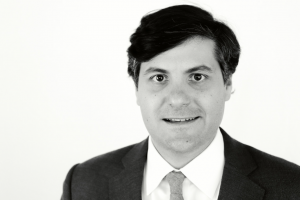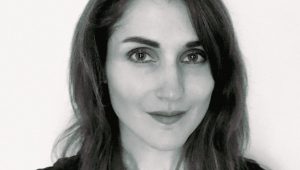Tell us about yourselves briefly
 Mike Klein, US Director: My experience is primarily at the intersection of information and communication technologies for development (ICT4D) and the use of evidence in a development context. I got into international development working on USAID programmes in Central Eastern Europe focusing on the impact innovations and impact investing within a development context.
Mike Klein, US Director: My experience is primarily at the intersection of information and communication technologies for development (ICT4D) and the use of evidence in a development context. I got into international development working on USAID programmes in Central Eastern Europe focusing on the impact innovations and impact investing within a development context.
I also ran firm called International Solutions Group for six years before it was sold to IMC Worldwide. While at IMC , I led business development and work around digital development. I also helped create their practice on innovations in data and digital programming.
 Alexandra (Ali) Cervini Mull,US Deputy Director: My particular interests are in research and evaluation related to gender and social inclusion, particularly girls’ education programming and sexual and reproductive health rights (SRHR) and protection programs in fragile and conflict affected settings (FCAS).
Alexandra (Ali) Cervini Mull,US Deputy Director: My particular interests are in research and evaluation related to gender and social inclusion, particularly girls’ education programming and sexual and reproductive health rights (SRHR) and protection programs in fragile and conflict affected settings (FCAS).
I started working on DANIDA-funded programming in sub-Saharan Africa while I was living in Denmark doing my Master’s, focusing on small scale livelihood development and gender and youth programs. Then I joined up with Mike at ISG, so our stories are actually the same story!
Since joining Itad, I’ve worked on business development with Mike as well as starting up and running two of our larger USAID contracts in West Africa and Somalia.
What drew you to Itad?
M: I already knew Itad through competing and collaborating with the company for over a decade. Itad is seen as the gold standard when it comes to evaluation in the development sector, so when they started looking for a director to move into the US I was excited by the potential of work that might be done, particularly in the humanitarian space.
Having worked previously with UK-based organisations, to help spearhead their growth in the US, it seemed like a logical fit.
A: I was interested in the work Mike was telling me Itad was doing in the SRHR and gender space, such as the Adolescent 360 programme.
The opportunity to leverage the UK office’s work in FCAS and with vulnerable populations in a US Government context really appealed to me.
What are you working on right now in the US office?
A: A large part of our current work focuses on the data innovation space, for instance we’re doing a gender AI programme in the education sector funded by USAID. It is really exciting!
We’re also the MEL and research partner on DT Global’s Inclusive Resilience in Somalia programme – for which we recently went on a great trip to Mogadishu to help support the implementing partners develop the programme theory of change. Now, we are leading a evidence mapping exercise to help implementing partners better design and implement their interventions.
In terms of our FCAS portfolio, we’re currently working on USAID’s Peace Evaluation Learning Activity 2 (PELA 2). This is an important platform for promoting learning, monitoring, evaluation and research across all of West Africa on conflict and instability, peace building, governance, anti-corruption, and preventing and combating violent extremism programming. As part of PELA 2, we are contributing to the implementation of the The U.S. Strategy to Prevent Conflict and Promote Stability which is relevant to USAID, US Department of Defence and the State Department. We are undertaking an evidence mapping in the across the region.. The aim of this is to understand the impact of different interventions over 5 years relating to key areas and sectors of the strategy.
What MEL innovations are exciting you right now?
M: In the context of the US Government and USAID, there has been a significant effort to understand the impact of innovations and data on development programs and how they inform the use of evidence in these programs. This is particularly exciting when combined with global programs that provide knowledge management or monitoring, evaluation, and learning (MEL) roles. This enables locally or nationally based assessments of ecosystems to leverage global insights on the effectiveness of using digital technologies and innovations in development programs.
As these investments and programmes mature, we will be able to apply those learnings in our work to inform more impactful programmes. So, for example, part of the work we’re doing in Somalia with PELA includes drawing on global initiatives like 3IE and existing gap maps which is a pretty labour intensive process. But as these investments and initiatives continue to evolve, this information will be more readily at hand both nationally and globally which will be really valuable.
What areas of work would you like to focus on in the future?
A: In terms of looking forward within our portfolio, we are interested in MEL capacity building, particularly through working with grantees and helping them report on their activities.
We are also keen to expand our work on digital innovation within programmes, whether that’s towards MEL or implementation of programs. Finally, we should capitalise on all the great work being done in our FCAS practice area under CSSF- specifically, MEL within humanitarian and conflict-affected contexts.
What’s the best question you’ve been asked or asked someone else lately?
M: I get asked if I have an affinity for working for British firms pretty regularly which is which is funny.
But to take it a little seriously, I really do think funding innovation is one of the hallmarks of the UK Government’s Foreign, Commonwealth and Development Office.
They may not fund the largest programs in the global development sector, but they are typically very innovative and cutting edge. So I really enjoy being able work alongside some of their programs and seeing how they translate into a US aid context.

